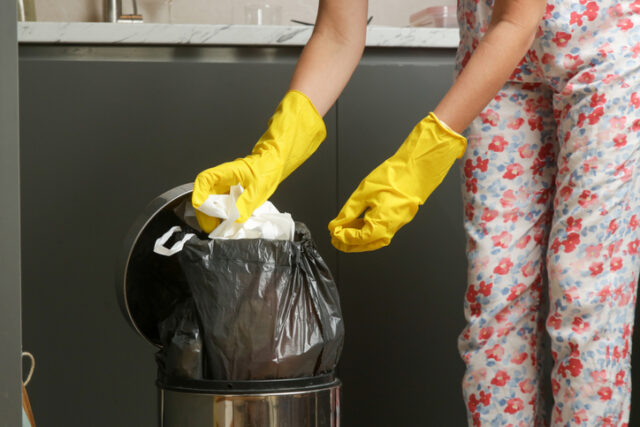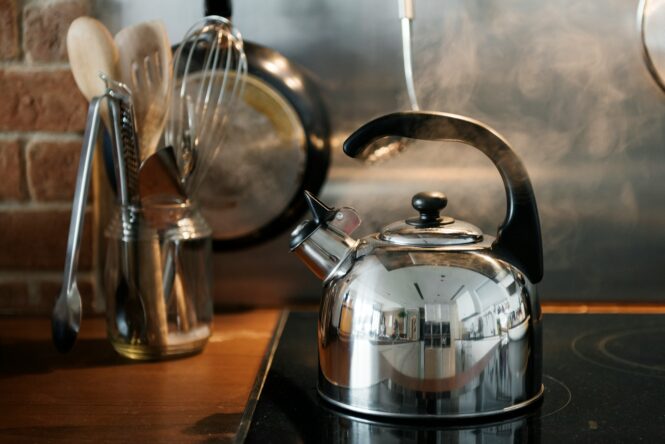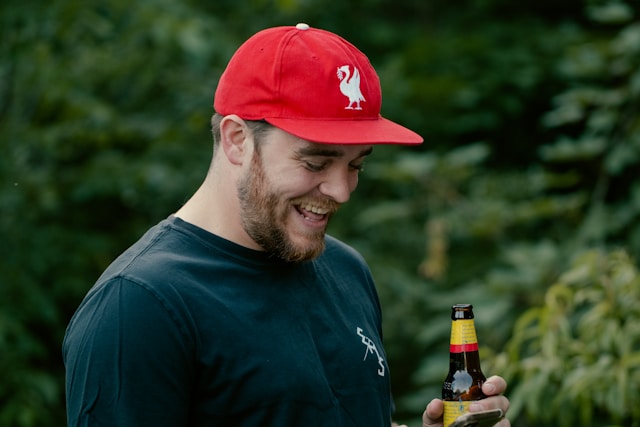Spend a little time in the UK, and it starts to rub off on you, even if you don’t notice it right away.

Americans who come over often pick up a few quirks, sayings, or habits that sneak into their routine long after they’ve flown back home. They don’t just start loving a nice, strong cup of tea or calling their friends “mate”—it’s the little things that slowly stick. For anyone from the US who’s hopped across the pond and spent time here for more than a few days, these are just a few of the habits they probably took home with them without even noticing.
1. Saying “sorry” for things that aren’t their fault

Americans are used to saying sorry when they’ve actually messed up, but after time in the UK, that word starts flying out for everything. Someone bumps into you? You say sorry. You walk into a shop at the same time as someone else? Sorry again. That’s just how we do it here.
It becomes less about guilt and more about keeping the peace. It’s a social cushion, and once you get used to using it that way, it’s hard to stop. Lots of Americans find themselves apologising back in the US and wondering why no one else is doing it.
2. Drinking tea like it’s a daily ritual

Cliche but so true. Americans who used to be hardcore coffee-only people often come back from the UK with a sudden appreciation for a strong cuppa, especially when it’s cold out or things feel a bit chaotic. It makes them feel more cultured or fancy, I suppose.
They’re not drinking anything special, either—just standard black tea (which they’ve hopefully brought home with them, since American brands are pretty awful). It’s the simple, comforting rhythm of boiling the kettle, adding milk (if you’re doing it right), and taking five minutes to pause. It just hits different after you’ve had it the British way.
3. Using “brilliant” as their go-to response

In the US, “brilliant” is usually reserved for genius-level ideas. However, spend enough time over here, and suddenly, it becomes an enthusiastic response to everything. Got the day off? Brilliant. Found your keys? Brilliant.
It sounds oddly charming and feels way more satisfying than just saying “cool” all the time. It slips into Yankee vocabulary without warning, and before they know it, they’re sprinkling it into everyday conversations like it’s totally normal.
4. Talking about the weather way more than they used to

It’s not that they suddenly care about the rain more. It’s just that chatting about the weather becomes second nature. Over here, it’s the safest way to start a conversation, ease into a chat, or just fill the silence without getting personal. Once they adopt that habit, it comes with you. They’ll catch themselves saying “bit nippy today” or “not bad for this time of year” back home, and realising they’ve fully entered small-talk mode, British edition.
5. Saying “proper” when they mean “legit”

You’re not just cold—you’re proper cold. That restaurant wasn’t just good—it was a proper meal. The word gives everything a bit of weight and seriousness, and once you’ve picked it up, it’s hard to stop using it. We should know—we do it all the time in this country.
It slides into Americans’ vocabulary effortlessly and replaces words like “real,” “genuine,” or “legit” with something that just feels better. They don’t even notice how often they say it until someone points it out with a smile.
6. Saying “cheers” instead of thank you

This one comes out of nowhere, and it’s always a bit laughable to us Brits, especially since it just doesn’t sound right in an American accent. Nevertheless, whether they’re grabbing a coffee or hopping off the bus, “cheers” becomes their default way to say thanks. It’s friendly, casual, and somehow warmer than the usual “thank you.”
Even after they’re back in the US, they’ll catch it slipping out in emails, texts, and in person, and sometimes get a slightly confused look in return. Still, it sticks. It just feels nice to say.
7. Adding “bit” into everyday speech

It’s never just cold—it’s “a bit cold.” You don’t say you’re tired—you’re “a bit knackered.” The word “bit” becomes this softening agent that makes everything sound less dramatic and more relaxed. It’s subtle, but it changes the way you describe things, as we know all too well. It adds a kind of easy understatement that feels weirdly satisfying. Once Americans get into the habit, their sentences don’t feel complete without it.
8. Cutting back on small talk with strangers

In the US, chatting with cashiers, baristas, and fellow lift riders is normal. However, after some time in the UK, that habit cools off a bit. They learn to embrace the polite nod, the soft smile, and the blessed silence in public spaces. Back home, they might notice how much casual chatter happens, and how they’re not always in the mood for it anymore. It’s not about being rude. It’s just learning that sometimes, silence is the more comfortable option.
9. Swapping out “trash” for “rubbish”

At first it feels like a fun novelty, but then it becomes second nature. They’re not taking out the trash anymore, it’s the rubbish. And it’s not just about bins. They might even start calling a bad film or annoying idea “absolute rubbish” without thinking twice. The word has a rhythm to it. It feels punchy, expressive, and oddly satisfying to say. Once it lands in an American’s vocabulary, it’s hard to give it up.
10. Becoming slightly obsessed with kettles

If an American has stayed in a British home for any amount of time, they’ve no doubt noticed that kettles aren’t optional—they’re essential. Hot drinks, instant noodles, hot water bottles—it’s the hero of every kitchen. And once they’ve experienced the speed and ease, American stovetop boiling starts to feel ancient.
Many Americans end up buying an electric kettle when they get home. It becomes one of those things they didn’t know they needed… until they did. Then they wonder why everyone back home doesn’t have one yet.
11. Saying “you alright?” instead of “how are you?”

This classic British greeting sounds like a wellness check at first, but it’s just another way to say hi. And after a few weeks of hearing it, Americans start to use it too, even if it confuses people back home who think you’re worried about them.
It’s casual, quick, and has a certain charm. Once they get the rhythm, they seem to think it rolls off the tongue—and suddenly, “you alright?” feels way easier than the more formal “how are you doing?”
12. Being weirdly loyal to a specific supermarket

Whether it’s M&S, Tesco, Sainsbury’s, or Lidl, there’s something about UK grocery shops that gets under an American’s skin (and to be fair, our selection is pretty superior to American stores). They start having opinions (and loyalties!) based on ready meal selections, bakery quality, or which one has the best snacks.
Back in the US, they’ll find themselves missing the meal deals, the crisp selection, and the very specific vibe of their chosen supermarket. No American shop hits quite the same, and they might end up trying to recreate the magic with a basket full of random British imports.




